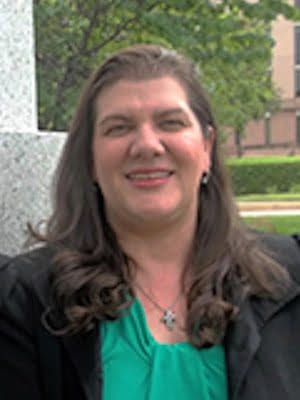Pope Francis recently denounced human trafficking in the strongest language, saying, “These are very grave crimes that hit the weakest of the weak.”
Both Hebrew and Christian Scriptures remind us that God expects us to protect the most vulnerable among us. Today, sadly, these vulnerable people are among us as modern-day slaves, held in bondage here in the U.S.
Each year, vulnerable men, women and children are trafficked across our borders and then forced into slavery.
Many are fleeing terrible situations in their home countries and come to the United States to find a better life. Unfortunately, the nightmare often begins when they reach our shores.
Human trafficking takes many forms, and people can be exploited in nearly every industry. Federal law recognizes two types of exploitation – sex and labor. Often, these are intertwined.
Children are exploited in a wide variety of industries and settings, including domestic servitude, retail personal care services (hair braiding), construction and manual labor, restaurant work and agricultural processing.
Some children are relatively isolated in people’s homes, while others are in contact with the general public in retail settings.
What can congregations do to stop this slavery?
We can encourage laws that defend and support victims of human trafficking. We can support agencies that assist victims. And we can encourage people who are being trafficked to escape, including providing a safe place for them to stay through our congregation.
We must do more to identify, rescue and restore the precious and vulnerable victims of this tragic crime.
The Texas Conference of Catholic Bishops (TCCB) supports bills that have been filed this year for the 85th Texas Legislature that restore the dignity of human trafficking victims.
These bills do so by sealing court records of trafficking victims, if they are convicted of prostitution, or by improving identity protection of human trafficking victims.
The bishops also support a proposed bill requiring that applicants for commercial truck licenses participate in a training class on recognition and reporting of human trafficking. A complete list of bills that are being monitored by the TCCB can be found on our website.
For almost 35 years, the United States Conference of Catholic Bishops/Migration and Refugee Services (USCCB/MRS) has coordinated a network of unaccompanied minor refugee programs across the U.S. to provide care and custody for thousands of eligible children. This network includes services provided in Texas. You can find more information on this work here.
Make no mistake: There are just as many domestic trafficking victims in Texas as there are immigrant victims. Often children in the foster care and child protective services system fall prey to traffickers.
How can you help someone you suspect is being held illegally as a slave? What are some of the warning signs to identify and assist a victim of human trafficking?
If you can speak with someone you suspect is being trafficked, here are some questions to ask:
- Can you leave your job or house when you want?
- Where did you get those bruises? Or: Is anyone hurting you?
- Do you get paid for your employment? Is it fair? How many hours do you work?
- If a foreign national: How did you get to the U.S. and is it what you expected? Are you being forced to do anything you don’t want to do?
- Are you or your family being threatened?
- Do you live with or near your employer? Does your employer provide you housing? Are there locks on doors or windows from outside?
- Do you owe debt to anyone?
If you suspect the person is a victim of human trafficking, ask the person if you can help her or him find a safe place to go immediately. If not, help them create an action plan to go to a safe place when ready.
Finally, make a report to the human trafficking hotline at 1-888-373-7888. You may very well be saving someone’s life.
Jennifer Carr Allmon is executive director of the Texas Catholic Conference of Bishops, the association of the Roman Catholic bishops of Texas. Through the TCCB, the bishops provide a moral and social public policy voice that includes monitoring all legislation pertaining to Catholic moral and social teaching, accredit the state’s Catholic schools and maintain records that reflect the work and the history of the Catholic Church in Texas.
EthicsDaily.com published in January a seven-part series on how local churches and nonprofit organizations are working (and can work) to address human trafficking:
A Baptist Report Card on Human Trafficking by Robert Parham
The Thin Line Between Prostitution and Sex Trafficking by Valerie Carter
One Church’s Role to Put Dent in Sex Trafficking by Duane Brooks and Jen Whittenberg
Stopping Human Trafficking Begins in Our Churches by Pam Strickland
4 Steps You Can Take to Thwart Human Trafficking by Stacy Blackmon
What Your Church Must Know to Combat Human Trafficking by Elizabeth Goatley
How Baptist Women Fight Against Modern-Day Slavery by Candice Lee
Executive director of the Texas Catholic Conference of Bishops (TCCB), a federation of all Roman Catholic dioceses and ordinariates located in the State of Texas. The TCCB extends the ministry of the Texas bishops within the church community in four ways: communications and coordination; public policy advocacy; Catholic schools accreditation; and the Catholic Archives of Texas.

